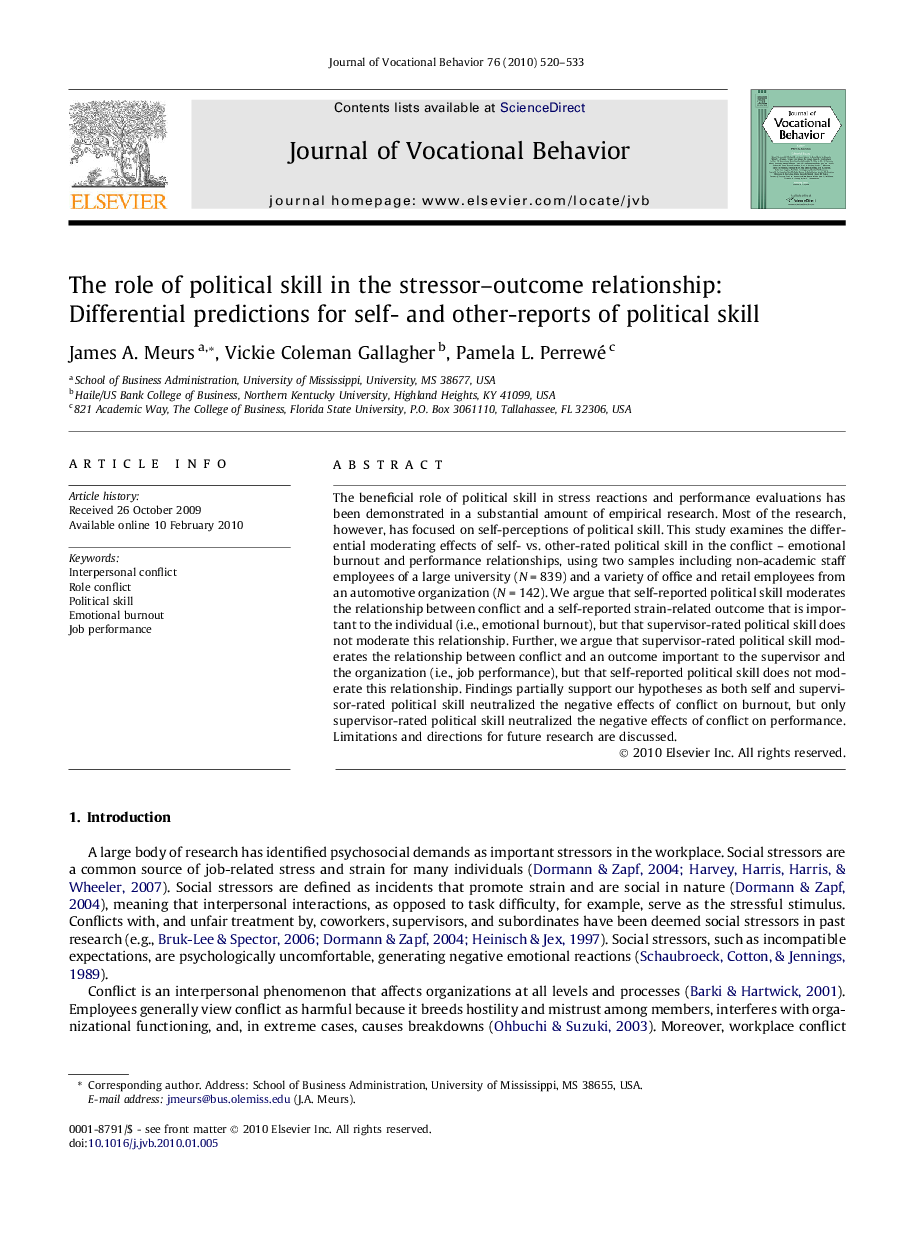| کد مقاله | کد نشریه | سال انتشار | مقاله انگلیسی | نسخه تمام متن |
|---|---|---|---|---|
| 887407 | 913180 | 2010 | 14 صفحه PDF | دانلود رایگان |

The beneficial role of political skill in stress reactions and performance evaluations has been demonstrated in a substantial amount of empirical research. Most of the research, however, has focused on self-perceptions of political skill. This study examines the differential moderating effects of self- vs. other-rated political skill in the conflict – emotional burnout and performance relationships, using two samples including non-academic staff employees of a large university (N = 839) and a variety of office and retail employees from an automotive organization (N = 142). We argue that self-reported political skill moderates the relationship between conflict and a self-reported strain-related outcome that is important to the individual (i.e., emotional burnout), but that supervisor-rated political skill does not moderate this relationship. Further, we argue that supervisor-rated political skill moderates the relationship between conflict and an outcome important to the supervisor and the organization (i.e., job performance), but that self-reported political skill does not moderate this relationship. Findings partially support our hypotheses as both self and supervisor-rated political skill neutralized the negative effects of conflict on burnout, but only supervisor-rated political skill neutralized the negative effects of conflict on performance. Limitations and directions for future research are discussed.
Journal: Journal of Vocational Behavior - Volume 76, Issue 3, June 2010, Pages 520–533